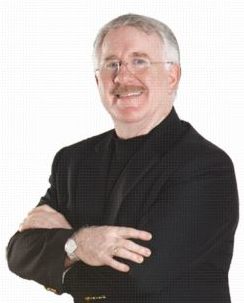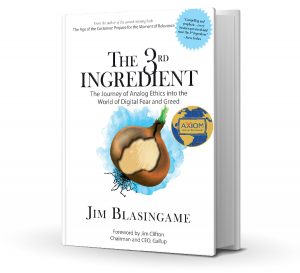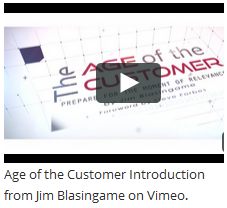For as long as businesses have tried to get customers to buy their stuff, a referral has been the holy grail of prospecting. Like the mythical chalice, a referral is golden.
To emphasize the power of referrals, allow me to introduce “Blasingame’s Prospect Entrée Spectrum” (BPES), which is a way of valuing the method used to get in front of a prospect.
The BPES is on a scale of 1-10, with a cold call being a 1, and the unqualified referral a 10. The difference between scoring a referral and making a cold call is, to borrow from Mark Twain, like the difference between lightning and a lightning bug. Let me put a sharper point on that: In the Age of the Customer, cold calling is a fool’s errand.
Asking for and getting an appointment is a 5. From 2 to 5 on the spectrum are varying degrees of quality of connection that you attempt without a referral, like networking. From 6 to 9 represents varying quality of referrals. For example, a 6 is a casual referral with one of two qualifications attached: either the referrer doesn’t know you well, or doesn’t know the prospect well. The goals is to demonstrate you’re worthy of a full-throated, unqualified referral — 10 — which is almost money in the bank. When you hear someone say they’re working smarter, not harder, it means they’re earning lots of referrals, including an increasing number of 10s.
Here are five things to do to sustain a successful referral strategy:
2. Help customers give you referrals by teaching them how to tell others about you and your business. Instructions must be short and sweet, like an elevator pitch.
3. Be worthy of a referral. Take good care of the referred prospect, even if you don’t make a sale.
4. Thank the referrer every time, in person if possible, regardless of the result of the referral. Remember, getting a referral is success.
5. If you want to get referrals, give them to others.
On that last point, in Ecclesiastes 11:1, King Solomon wrote, “Cast your bread upon the water and in time it will come back to you.” Three millennia later, Ivan Misner, my friend and founder of Business Network International (BNI) gave us a handier way to remember the law of reciprocity. Ivan simply says, “Givers gain.” Beautiful.
In the Age of the Customer if you’re not asking for and getting referrals, you’ll have to work much harder than is necessary just to survive.
Write this on a rock … Seek the holy grail and Perfect 10 of prospecting – the unqualified referral.






